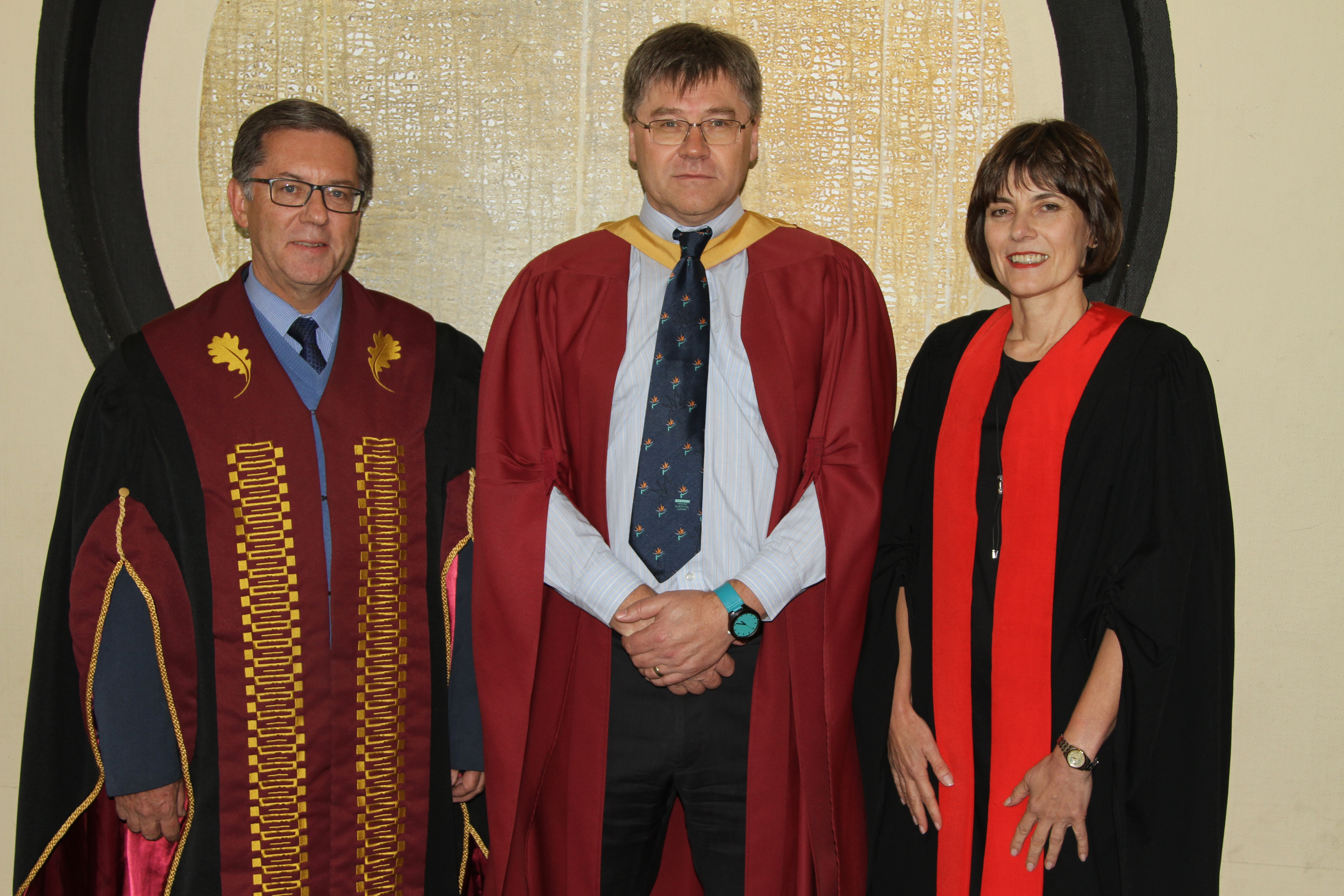Rising atmospheric CO2 and climate change could in the long run have a devastating effect on ecosystems and biodiversity.
This was one of the viewpoints of Prof Guy Midgley of the Department of Botany and Zoology at Stellenbosch University in his inaugural lecture on Monday (25 April 2016).
Midgley spoke about the serious threat of climate change and said we are getting closer to the edge. He added that data for the first three months of 2016 show a very sharp rise in global temperatures.
"The rise in global temperatures is starting to get quite frightening because if we project forward we are on track for exceeding the historical base line by 1.4°C."
"That is an extraordinary statistic because the Intergovernmental Panel on Climate Change (IPCC) says that 2°C is a dangerous level of climate change."
"According the IPCC, if we continue burning fossil fuels we could take our ecosystems back 40-50 million years in the space of a couple of centuries. It could change everything about the way our world works."
 Midgley said the negative effects of rising CO2 and climate change on ecosystems can already be seen in certain parts of the world.
Midgley said the negative effects of rising CO2 and climate change on ecosystems can already be seen in certain parts of the world.
"One of the most disturbing and upsetting things that happened in the last few months is the bleaching of the Great Barrier Reef in Australia". Bleaching of coral reefs occurs when corals lose their colour and turn ghostly white due to stress caused by warmer temperatures and excessive sunlight.
Midgley said the IPCC already predicted in 2007 that this would happen if global warming continued unabated.
He criticised those who continue to downplay the risks that we face with regard to rising CO2 and climate change.
Midgley said although they argue that climate change has happened before, it has been at least five degrees cooler for the last 800 000 years before we started burning fossil fuels.
"We almost have to go back four to five million years to get to the CO2 levels that we currently have just from burning fossil fuels. To say that climate has always been changing and CO2 levels aren't a problem is to completely misrepresent the historical record."
The implications of rising CO2 are highly under-appreciated, Midgley said.
- Photo 1: The Great Barrier Reef that bleached due to climate change. (Flickr)
- Photo 2: Proff Eugene Cloete, Vice-Rector: Research, Innovation and Postgraduate Studies, Guy Midgley and Louise Warnich, Dean of the Faculty of Science, at the inaugural lecture. Photographer: Justin Alberts

